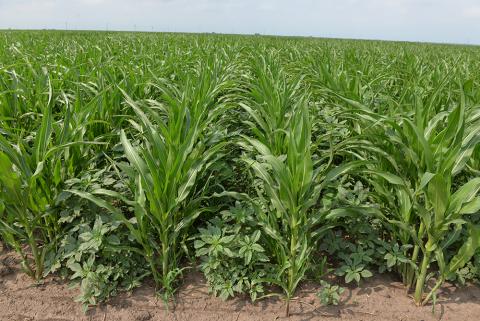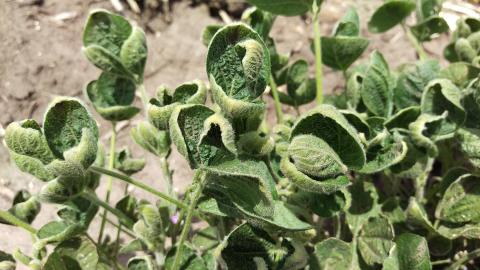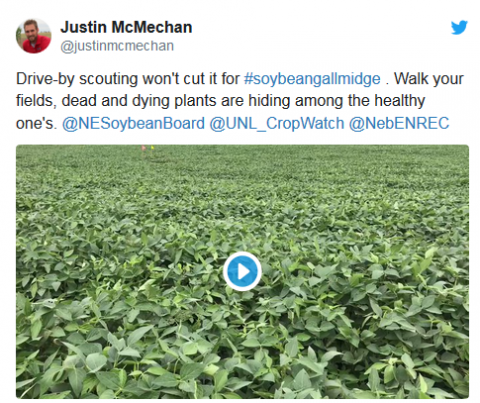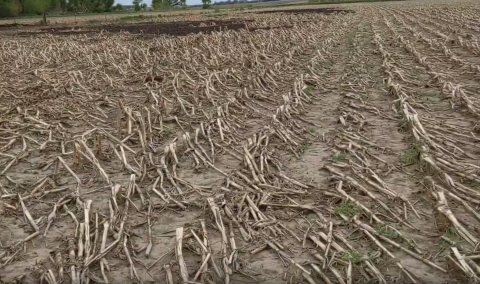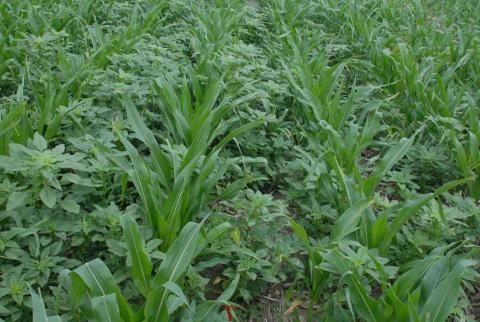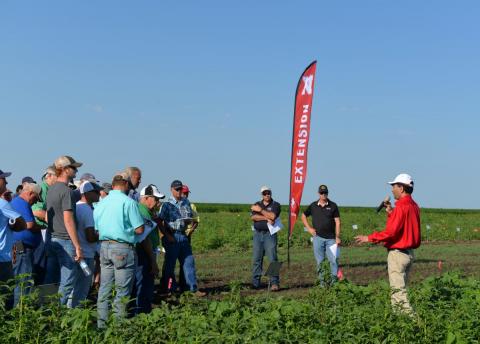Pre-emergence Herbicide Delays the Critical Time of Weed Removal in Nebraska Popcorn
September 9, 2019
Understanding the critical time of weed removal (CTWR) and how a pre-emergence herbicide application can shift it is helpful for designing the most efficient weed management program in popcorn.
Dicamba Off-Target Injury Continues in 2019 in Nebraska
August 16, 2019
As the crop season progresses, questions about dicamba off-target injury in soybean, broadleaf crops, and trees are increasing in Nebraska. If you suspect off-target injury in one of your fields, here's a reminder of what to do.
Extension Crop and Pest Reports (July 29 - Aug. 2)
August 1, 2019
Crop reports from Extension Educators and specialists from across the state, including videos and Tweets.
Check Herbicide Restrictions before Planting and Using Cover Crops
June 28, 2019
Cover crops offer many benefits for prevented planting fields; however, including them in a rotation adds another layer of complexity, particularly when it comes to plant-back restrictions for previously applied herbicides. Here's what to check before selecting a cover crop species.
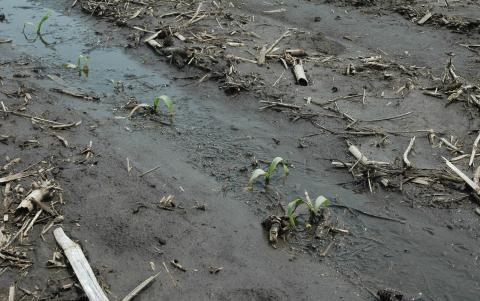
Corn Establishment and Growth in Saturated Soils: A Brief Review of New Research
May 31, 2019
How long can seedling corn survive under flooded conditions? A review of current scientific literature offers new understandings of when and how plant injury occurs and what factors affect it.
Control of Glyphosate-Resistant Marestail with Post-Emergence Herbicides in Corn and Soybean
May 29, 2019
Several post-emergence herbicides are available for control of marestail where spring weather may have interfered with application or efficacy of early spring burndown and/or pre-emergence herbicide applications.
Glyphosate-Resistant Palmer Amaranth Field Day July 10
June 7, 2019
Jason Norsworthy, a weed scientist from the University of Arkansas, will be the keynote speaker at this year's Glyphosate-Resistant Palmer Amaranth Management Field Day on Wednesday, July 10, near Carleton.
South Central Weed Management Field Day is June 26
May 14, 2019
On-site demonstrations of herbicides for weed control in corn, popcorn, and soybean and a study on terminating cereal rye before and after planting soybean are among those to be featured at the university's South Central Agricultural Laboratory near Clay Center.


